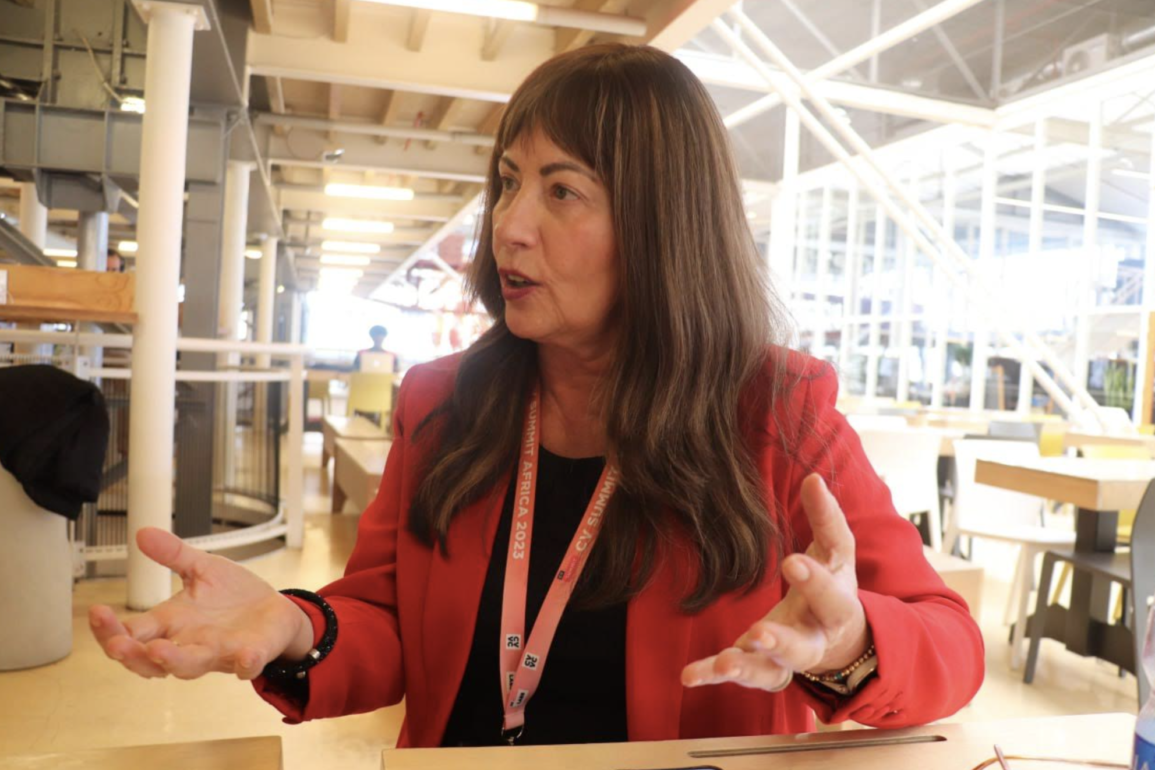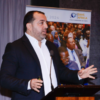Financial fraud has, for the longest part, been commonplace in all banking institutions. And audits, more often than not, collude with the perpetrators of these fraudulent dealings to conceal the misdeeds.
But South African Web3 connoisseur, Prof Monica Singer has ever had her sights set on checking the prevalence of the vices.
Her whole life, she told this reporter in an exclusive interview in Cape Town, she wanted to introduce models that would reduce global corruption and fraud. This motivation drove her to become a chartered accountant believing that as an auditor, she could reduce financial misappropriations.
“My first job was at the South African Institute of Chartered Accountants (SAICA), where I worked for eight years. But throughout the duration that I worked there, we kept seeing companies failing and fraud still persisted and went undetected,” Singer told me. “I realized that there is a concept called the ‘expectation gap’ in auditing. This is the difference between what the auditor can do and what the public thinks the auditor can do.”
In essence, fraud persisted in South Africa despite her representing the country in key global auditing committees.
The realization, according to Singer, is that when there is collusion in a company, the auditor will never pick it up, which is why corruption still looms large.
Despite more standards, laws or training the auditors, and all other measures put in place the reality, according to Singer, was that the system was, and still, is broken.
In 1995, at the age of 35, Singer who is also a board member of the SAICA and the Accounting Blockchain Coalition, went to work with the World Bank and thought she was “going to save the world.”
But the truth was that even though the world’s apex bank gave money to institutions and governments, it had no control over how that money was spent. It could not tame corruption.
“My inquiry at the lack of controls and the proliferating corruption were answered with a notion that the bank was never allowed to use the term ‘corruption’. It took a long time for the bank to decide that before it took any money to governments, it had to put measures in place to ensure that the money was never stolen,” she said.
Seven months after joining the World Bank, Singer left it more disappointed despite the optimism she had when she joined it.
In South Africa, just after leaving World Bank in the US, Singer had an opportunity offered to her by the then stocks markets CEO Roy Anderson, to run a project that sought to convert all paper-based transactions at the stock market into digital share certificates, with the payment made in cheques.
From fraudulent cheques to certificates, this exercise was also rife with fraud and corruption.
Singer indicates that then, she had zero experience in stock markets, while South Africa itself was by then – between 1995 and 1996 – categorized as the worst emerging market in the world because it was rife with fraud.
“And so, despite my lack of knowledge in stocks, my good research skills got me to work,” Singer recalls. “I learnt more about the stocks, began the project in 1996 and sought to go live in 2000. But then that was the year of the Y2K millennium bug and no one wanted to implement any digital projects during that period. So it was all delayed.”
She added: “After Y2K, I was allowed to bring 10 companies into the technology and two years later the rest of the other companies. It became a success.”
In 2010 onwards, South Africa was consequently ranked by the World Economic Forum among the best financial developing markets globally alongside the likes of Hong Kong, and Singapore because of the technology that Singer implemented.
“We essentially eliminated all the fraud that was rampant in the stocks markets and that was perhaps the best feeling for me ever since I was a little girl when I held the notion that one day I would reduce corruption and fraud in the world,” she said.
Singer, who is also a fellow of the Institute of Directors and the vice chair of the Global Legal Entity Identifier Foundation (GLEIF), still felt dissatisfied because she could not provide the listed companies in real time the information on who effected fraud and corruption.
The market did not allow her to own any such ‘confidential’ information of the investors. There was still secrecy all over, and no transparency.
When Lehman Brothers collapsed on September 15, 2008, she felt there were no mechanisms in place to warn investors of any such phenomena.
When ‘Occupy Wall Street’ happened in 2011, South Africa’s Johannesburg Stocks Exchange (JSE) was, however, never affected due to the measures Singer had put in place, even though losses due to lack of trust had led to the closure of most major stock markets.
“Our risk management tools were so superior that they could manage the systemic risks that were taking place in other stock markets around the world,” she said.
She later founded a company called Strate, which acted as a central security depository that centralized all the data related to stock market transactions and over-the-counter (OTC) trade.
In 2016, she heard of bitcoin and became intrigued. She read Satoshi Nakamoto’s Bitcoin whitepaper and realized that centralizing institutions opened doorways for security risks to permeate throughout the organization.
Decentralization, Satoshi’s white paper said, could solve all these problems.
It was during her attendance at one of the ConsenSys summits in 2017 that a narrative emerged that she was going full-time into the blockchain.
And after initially, unknowingly pushing away ConsenSys CEO and one of Ethereum’s co-founders, Joseph Lubin’s propositions to work at the tech company, she later ate humble pie and joined the organization.
At ConsenSys, she initially got the job of educating the masses on Web3; an assessment that was rather tough because many that she taught had no patience to listen to her.
She revealed to NODO News that she achieved nothing in the five years that she taught Web3 at ConsenSys.
ConsenSys, essentially is a platform that makes it easy to build applications on Ethereum and participate in DeFi, NFTs, DAOs, and the metaverse.
“I now do education and advocacy at ConsenSys,” she told this reporter. “A lot of what people do with regard to blockchain, they do not understand. Therefore we need to do more advocacy.”
She also works in implementing blockchain solutions on behalf of ConsenSys, where she is the tech organization’s South African lead.
The concepts of crypto-tech, ledger, and blockchain, she therefore intimated, are much more useful in accounting. Blockchain prevents collusion in auditing due to its transparent, decentralized and immutable nature. This presents accounts that are transparent and never corrupted.
On the prospects of African women in the tech space, she lamented how girls have been pre-conditioned by society that they do not need to be independent and can wait for a ‘prince’ to come and save them.
“Society has been biased towards women. And it is hard for them especially in this industry since girls now hold the notion that they do not need to study sciences or math,” she said. “But the truth is girls should learn programming, math, and languages. We need to tell them to learn these subjects, and never give them the impression that a husband will come to ‘save’ them. Not studying these subjects automatically takes girls off the markets of important professions.”
South African cultures, she said, are also chauvinistic. So girls need to work extra hard to make themselves empowered.
Singer is, accordingly, forming a Woman in Blockchain movement in Cape Town, South Africa for mentoring girls to rise and find their place in the space.




